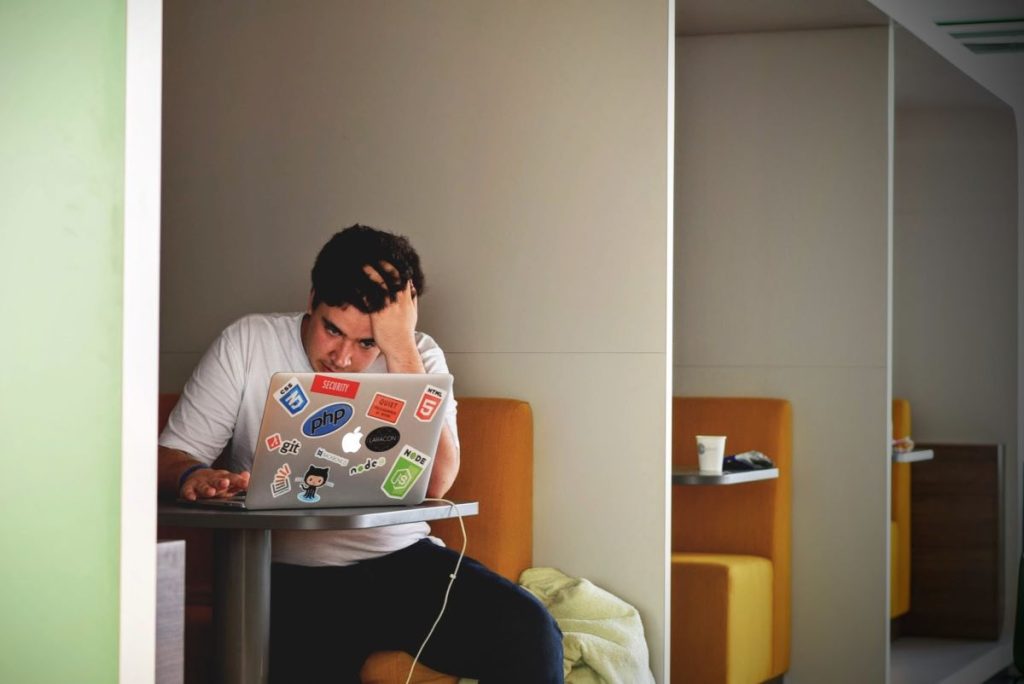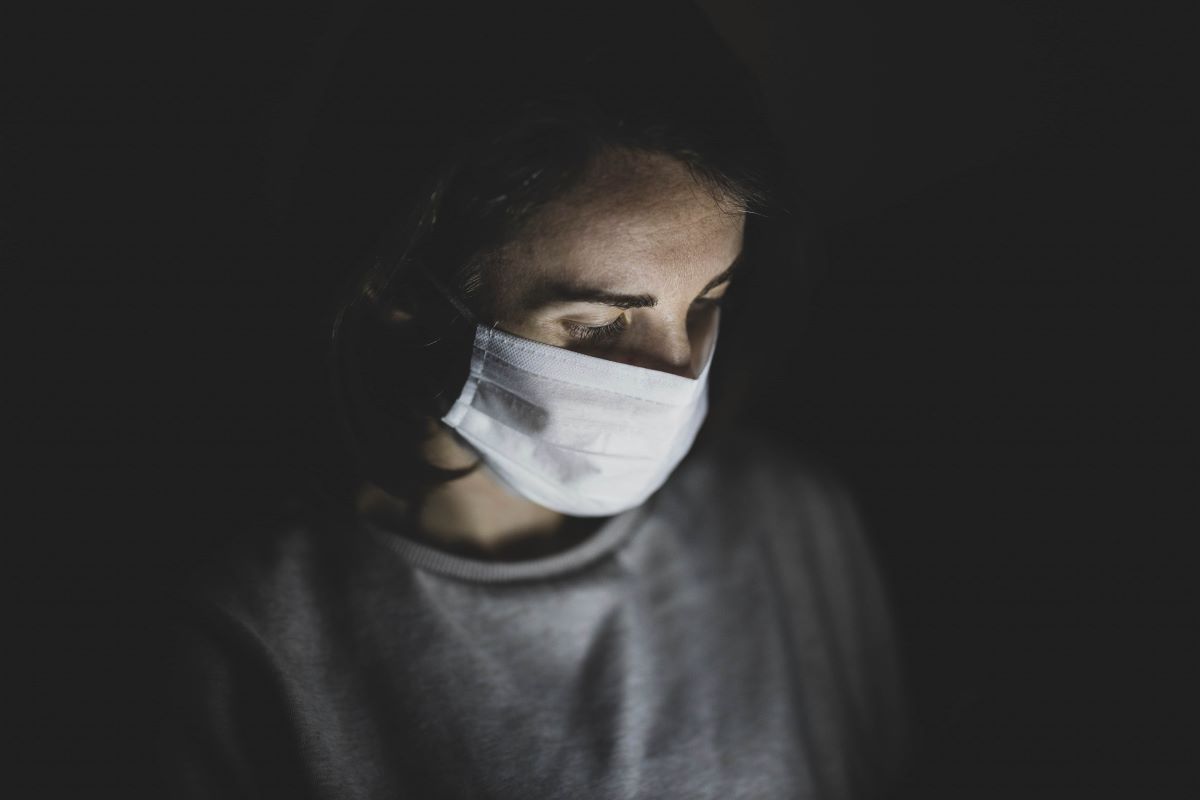Because of prolonged lockdowns and the looming fear of catching COVID-19, you may feel burnt out and find it more challenging to get up and do what you want to do. Even something as simple as browsing the internet for a condo for sale in the Philippines can become a chore if you’re burnt out.
Fortunately, knowing what you’re dealing with can help you fight your issues. So, in this article, we’ll help you learn more about pandemic burnout and how to handle it.
What Is “Pandemic Burnout” and Why Is it Distressing?

Pandemic burnout is pretty similar to normal burnout, although there’s a slight difference.
Burnouts are usually a state of emotional, mental, and physical exhaustion and are caused by too much stress for long periods. As it persists, you will eventually start to lose motivation and interest in your usual activities, especially at work.
Pandemic burnout is, as Forbes says, a “new kind of burnout.”
While most companies expected their employee engagement to plummet because of the pandemic, the opposite happened. For a while, employees were found to work harder, especially remote or work-from-home workers.
Unfortunately, this “motivation” was primarily out of fear of the effects of the pandemic on both employees and business owners.
Now, even if fear is something that can be used to drive people to work, it’s still a terrible motivator because it’s still a stressor. On top of that, there are other stressful factors to be considered in your environment, family, and relationships.
That stress is then inevitably prolonged by the pandemic and paired with your lack of opportunities to relax. This will cause you to lose motivation, feel helpless and resentful — and eventually, burnt out.
Stress VS Burnout: What’s the Difference?
Burnout may be caused by stress, but stress is still different from burnout. Hence, how you usually handle stress shouldn’t be the same as how you tackle burnouts. While a vacation can have significant help to reduce stress, it may not work for burnt-out people.

With stress, you have difficulty handling pressure, and you feel fatigued right after. However, even with the stress, you’re still capable of “seeing the bright side,” that everything will get better after you get everything under control.
With burnout, you may feel hopeless and think that your efforts have been for nothing. Small tasks can feel more complicated than it actually is, and you fail to accomplish even the trivial tasks. Unfortunately, you don’t always notice when you’re already burnt out.
What Are the Signs of Pandemic Burnout
According to Patricia Grabarek, a workplace wellness expert at the University of Southern California, there are three elements to pandemic burnout:
- Emotional and/or physical exhaustion.
- Feeling disconnected from work or family.
- Feeling less effective

Each of these elements is correlated with the other. You can have difficulty connecting with your friends or family if you feel exhausted, and exhaustion can make you feel less effective, which can affect your morale.
Meanwhile, in an editorial published in the International Wound Journal, there are said to be eight signs of burnout:
- Experiencing feelings of failure, sadness, apathy, depression, or apathy.
- Practicing poor self‐care.
- Blaming others or feeling generally irritable.
- Isolating or disconnecting from others (even virtually).
- Becoming easily frustrated.
- Feeling tired, exhausted, or overwhelmed.
- Feeling disassociated, indifferent, or apathetic.
- Using negative coping strategies.
Make it a point to watch for these warning signs so that you would know how to address these issues. Burnout isn’t a dead-end, and there will always be a way for you to rise above it. Otherwise, there can be consequences to your health.
How Does Burnout Affect Your Health?
It’s still too early to tell what unique effects pandemic burnout has on your health. Although, since it’s still very much similar to burnout, we can tell you more about the effects of burnout in general.
If left ignored, burnout could have other effects that can bring you to a worse place than where you already feel you are. It can lead to adverse consequences in other areas in your life, including physical health, mental health, personal life, and professional life.
Physical Health Issues
With physical health, burnout can make you feel excessive stress and fatigue. However, according to a 2017 study, the most frequent physical outcome of burnout was cardiovascular diseases like coronary heart disease and other risk factors like:
- Obesity
- Hyperlipidemia
- Type 2 diabetes
- Hypertension
- Impaired fasting glucose
Moreover, since burnout is essentially prolonged stress or chronic stress, it can also result in the overactivation of vital functions, like heart rate and blood pressure. This, in turn, can have associations with other illnesses, including:
- Sleep disorders
- Reduced immunity
- Changes in blood coagulation
- Changes in fibrinolysis
- Adoption of poor behaviors that can affect health, like smoking and lack of physical activity
Furthermore, impairments in immune function caused by burnout can increase your chances of catching infectious diseases, like flu-like illnesses.
Mental Health Issues

For mental health, the main psychological consequences of burnout were found to be insomnia and depressive symptoms. Studies showed that burnout is a significant factor that can cause healthy people to have insomnia or increase the risks of having insomnia.
According to Health Line, insomnia can increase risks of other medical conditions, including:
- Stroke
- Asthma attacks
- Seizures
- Weak immune system
- Sensitivity to pain
- Inflammation
- Obesity
- Diabetes mellitus
- High blood pressure
- Heart disease
Moreover, studies also showed that men suffering from prolonged burnout are 5.17% (per year) more likely to enter antidepressant treatment. Men were also found to be more at risk, as women were only 0.96% (per year) more likely to enter the same treatment.
Occupational Consequences
Job dissatisfaction and absenteeism are the two most common occupational consequences suffered by burnt-out employees. Employees who were found to be dissatisfied with their jobs because of burnout have higher chances of being emotionally exhausted.
Meanwhile, researchers found that burnout was potentially connected to more sickness absence days. The worse burnout an employee experiences, the more likely they were to be absent from work. In fact, they were found to have an average of 13.6 sick days every year.
Unfortunately, even after having adjustments in work and health conditions, chronically stressed employees were found to be 21% more likely to have sick absence days.
So, as you can see, burnout can have severe effects on your health and overall well-being. It will spill over every area of your life, which can eventually affect the people around you. Because of these many consequences, it’s essential to know how to handle burnout immediately.
How to Handle Pandemic Burnout
As bad as burnout can get and as hopeless you feel, it’s not too late. Burnout is very much manageable. Follow these tips to prevent or handle pandemic burnout:
1. Ask For Help
Burnout can make you feel like everything is hopeless, and it’s challenging to find the drive to get yourself out of it. Feeling like you have to deal with it alone can make it even more difficult. So, ask for help.
It doesn’t have to be professional help immediately. You can try reaching out to others, especially those close to you, and ask for support and share what you’re dealing with.
Social contact is one of the most effective ways to deal with stress and burnout. Having someone who is actually a good listener can help blow off some steam and calm you down. The person may not directly fix your problems, but having an unprejudiced company can help lessen the load you’re carrying.
You can also consider looking for new friends. If you feel like you don’t have anyone close enough to hear your thoughts, strangers can be great listeners. Every new person you meet is an empty canvas, and you can paint whatever picture of yourself you want to portray.
At the same time, you should also limit your interactions with negative people. Being close to negative vibes all the time will eventually affect you and drag your mood with theirs. If you don’t have a choice and you work with a negative person, try your best to minimize your interactions.
2. Reorganize Your Days

One of the things that could lead to burnout is feeling like everything in your life is in chaos. Creating new routines and sticking to them can trick your brain into thinking that you have everything together. So, if you want to get yourself out of feeling burnt out, you have to change and organize your activities.
There are numerous ways you can do to organize your day-to-day tasks. One of the most effective ways is to write everything down.
Keeping everything in your head can overwhelm you, especially if you have many deadlines to keep track of. If you write them down, you can have a clearer vision of everything that needs to be done, making it easier to prioritize your tasks.
Having a clear structure of the things you need to do can make you feel more in control.
3. Work On Getting Better Sleep
Sleep is such an essential factor that it has a direct effect on your overall health. This is why people with chronic sleep disorders are more likely to have high blood pressure, heart failure, diabetes, depression, lower sex drive, and a whole lot more.
Luckily, there are also numerous ways to combat sleep problems.
According to Health Line, your circadian rhythm (more commonly known as your “body clock”) affects your body and hormones to tell you when it’s time to sleep. Moreover, your body clock is also affected by how much light hits your eyes.
When light hits your eyes, it signals your brain that it’s daytime, so it won’t produce the hormone melatonin. This hormone is released by your pineal gland and signals your brain when it’s time to sleep. Hence, it is directly responsible for controlling your sleep-wake cycle.
To maintain healthy sleep, there needs to be a clear divide in your days and nights. Exposing yourself to natural light or bright daylight during the day and keeping it dark at night will help you maintain a good sleep cycle.
This means you need to have a specific time for “lights out,” including smartphones, computers, and other electronic devices. So, try your best not to binge-watch your favorite series during the night and just sleep. Those episodes aren’t going anywhere.
4. Be More Physically Active
We’ve all been told that exercising can help change our life for the better (even people who don’t exercise give this advice). Well, they’re not wrong. If you’re doubtful of what people tell you, let’s let Science do the talking.
According to a 2015 study, exercise can be an effective tool to fight burnout. Moreover, different types of exercise can help you in different ways.
In the study, there were 49 participants — 13 males and 36 females — aged 19 to 68. The control group was asked not to do any exercise, while the other group had to complete a four-week workout program (either cardio or resistance).
After the study, the group that did the workout program showed better positive well-being, less psychological distress, and perceived less stress and emotional exhaustion. The researchers also discovered that resistance training was more effective in reducing stress.
So, even if working out is probably the last thing you want to do when you’re burnt out, you have to trust that it can help you get out of your mental quicksand. If you want a new environment, find a condo for sale in the Philippines that has a gym in the building.
5. Maintain a Proper or Balanced Diet

The saying, “you are what you eat,” may not be precisely accurate, but what’s pure fact is that your food can influence your brain.
According to an article published in Harvard Health Publishing, your gastrointestinal tract is responsible for producing 95% of your serotonin. Serotonin is a neurotransmitter that regulates your mood, sleep, appetite, and how you perceive pain.
Studies compared the effects of traditional diets and typical diets and found that those who opt for traditional diets are 25% to 35% less likely to have depression.
The traditional diets in the study involved fruits, vegetables, unprocessed food, seafood, and modest amounts of lean meat. On the other hand, the typical diets were processed and refined foods.
Therefore, what you put in your body is scientifically proven to affect your mood and energy levels. So, stick to a healthier diet and try to minimize sugar and refined carbs.
Better Environment, Better Mental Wellbeing
Pandemic burnout can be difficult to fight if you’re stuck in a place that gives you so much stress. Hopefully, the tips we gave you will help you achieve better mental wellness. Otherwise, maybe a fresh and new environment may be what you truly need.

If you’re considering moving, look for a condo for sale in the Philippines in a province or city with a different environment or culture. This may give you the restart you need in your life.
Related Blog: How to Take Care of Your Mental Health Amidst the Pandemic


